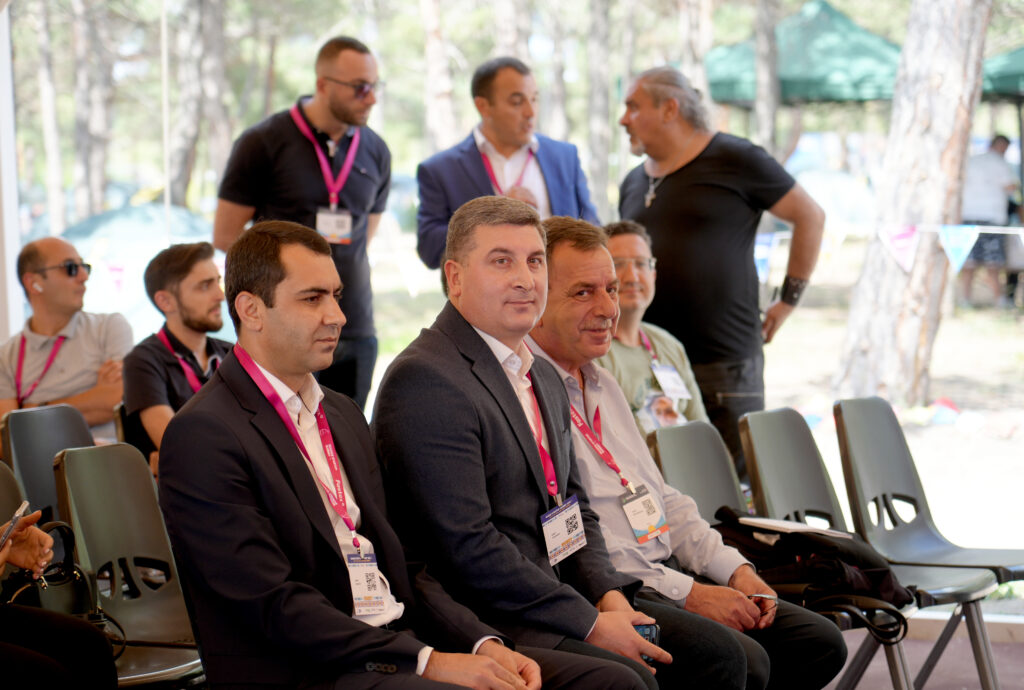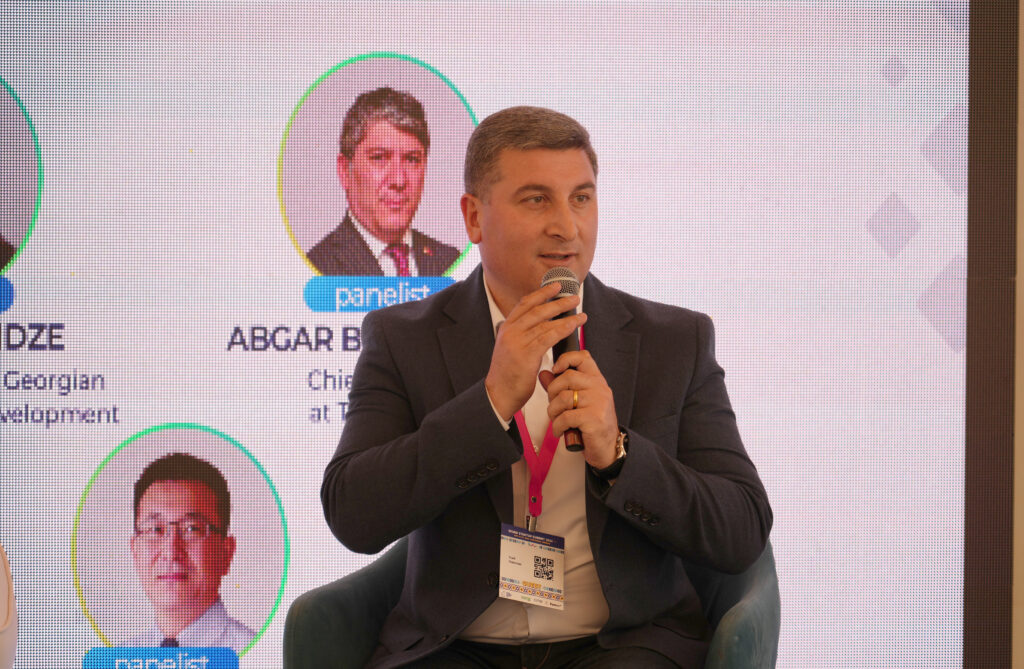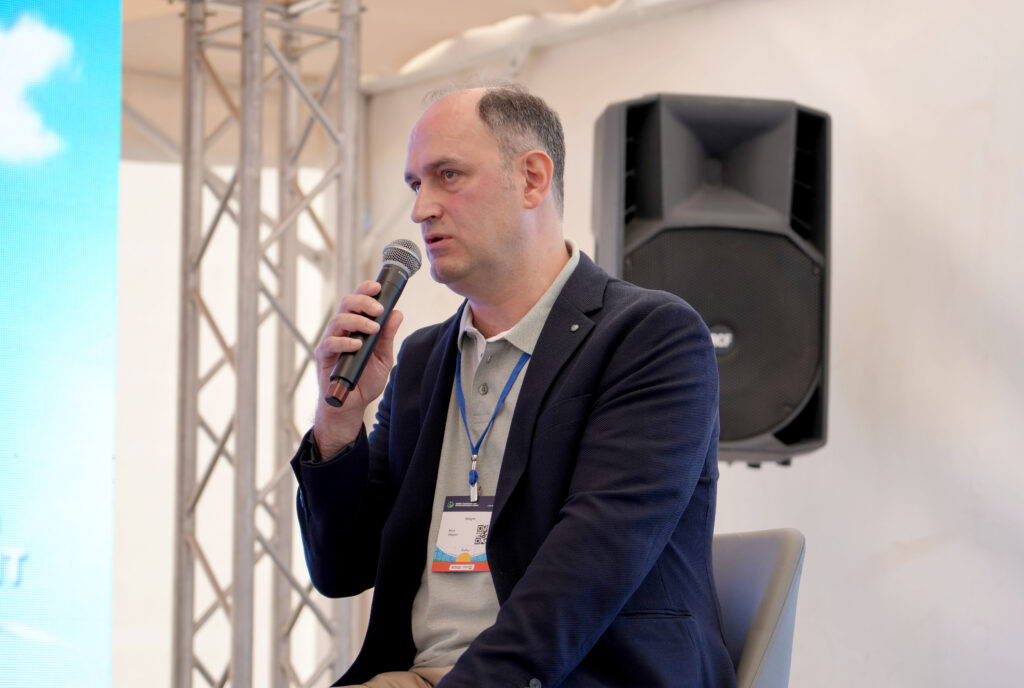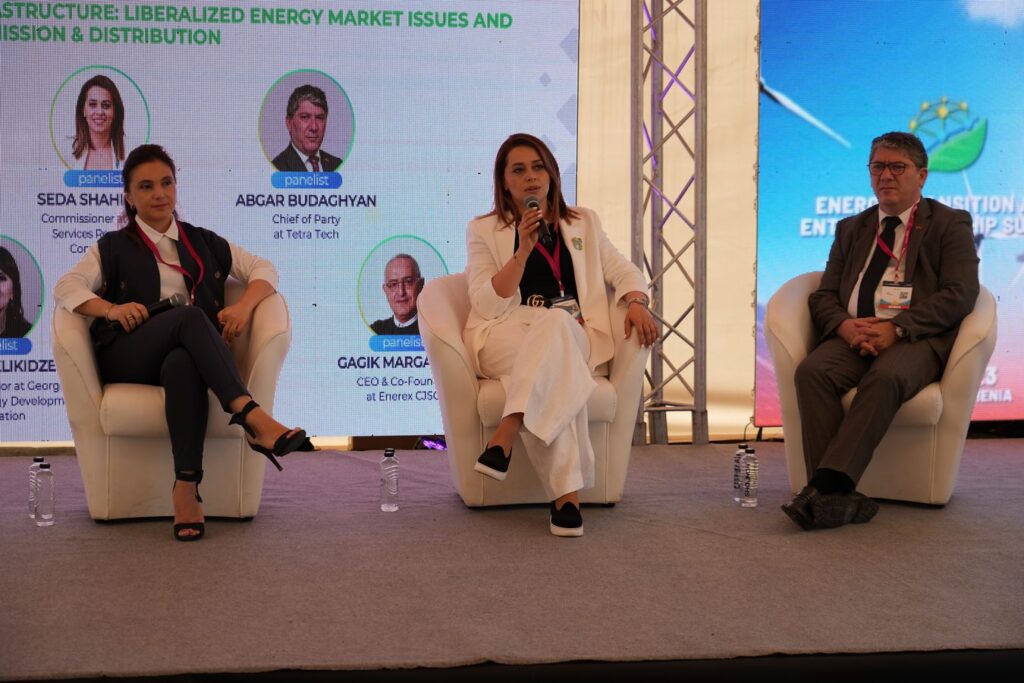On July 22-23, the shores of Lake Sevan transformed into a hub for professional discussions on the energy sector. Shtigen Group, in collaboration with the Startup Armenia Foundation, organized the “Energy Transition and Entrepreneurship Summit” (ETES) for the first time in Armenia. The summit, titled “Promotion of Innovation for a Sustainable Future,” attracted experts, representatives of international organizations, educational institutions, the state sector, and big companies from around the world.

During the two-day conference, participants addressed key issues in the sector, including energy market liberalization, governance, renewable energy, energy waste, e-mobility, and climate change, as well as innovative financial instruments. Minister of Territorial Administration and Infrastructure Gnel Sanosyan and Deputy Minister Hakob Vardanyan, who participated in the panel discussions, delivered speeches at the event.
“I am glad that a number of energy-related discussions were organized within the framework of the summit, which are extremely useful both in terms of the current situation and what we have to do. As a result of several projects focused on renewable energy development, the volume of electricity production from renewable sources has increased in Armenia in recent years. Particularly, production from solar plants has risen from almost zero to about 13% of the total production volume in the last five years,” said Minister Sanosyan.

Hayk Shekyan, CEO at Shtigen Group, emphasized the forum’s purpose of addressing energy sector challenges and creating a platform for outlining solutions. “Such discussions provide an opportunity to build cross-sectoral ties not only in Armenia but also in the region. The private sector’s initiative is particularly important because business representatives connect and develop these bridges, contributing to the formation of energy independence with consistent steps,” Shekyan noted.

Seda Shahinyan, a member of the Public Services Regulatory Commission and a summit speaker, highlighted the importance of the event and the liberalization of the electricity market: “Perhaps the main achievement is that we have demonopolized the sector. Today, the consumers of our country have the opportunity to choose from whom to buy electricity, under what conditions, and at what price.”

Maya Melikidze, Executive Director of the Georgian Renewable Energy Development Association (GREDA), participated in the panel discussion on “Energy Market and Infrastructures: Liberalization and Development” and made a presentation. “Since our two countries have many things in common, such summits contribute significantly to the sector’s development. In the field of renewable energy, we must consolidate our efforts to import and export electricity to further develop the sector, as it is of strategic importance. Shtigen is one of the important players in the field, and its accumulated experience and knowledge are very useful both for us and for the region,” said Melikidze. Notably, Shtigen Group is also represented in Georgia and is a member of GREDA.
As part of the summit, speakers and guests visited Armenia’s largest solar plant, “Masrik-1.” This 62 MW plant, owned by FRV (Fotowatio Renewable Ventures), an international leader in renewable energy development, partnered with Chinese contractor CMEK and outsourced the construction work to Shtigen.







